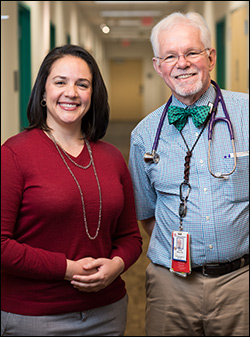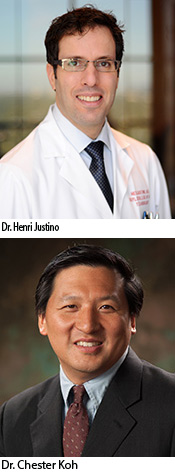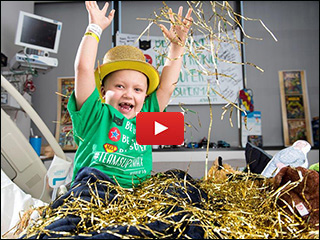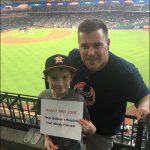 In 2002, Dr. George Mallory helped establish Texas Children’s Lung Transplant Program and has built it into one of the world’s preeminent pediatric programs, with a reputation for collaborative, patient-centered care. This year, Mallory is passing the torch of medical leadership to Dr. Tina Melicoff, who will lead the program in partnership with surgical director Dr. Jeffrey Heinle.
In 2002, Dr. George Mallory helped establish Texas Children’s Lung Transplant Program and has built it into one of the world’s preeminent pediatric programs, with a reputation for collaborative, patient-centered care. This year, Mallory is passing the torch of medical leadership to Dr. Tina Melicoff, who will lead the program in partnership with surgical director Dr. Jeffrey Heinle.
“We all share Texas Children’s vision of taking care of children with complex lung conditions,” said Melicoff. “Cases that would be too complex to treat elsewhere are common at Texas Children’s. With our amazing team, and our focus on clinical and basic research, we can continue to build on Dr. Mallory’s incredible legacy of compassionate care and clinical excellence.”
Under Mallory’s distinguished leadership, the program has reached some extraordinary milestones. It is one of the largest lung transplant programs in the world – and the most active, with the highest clinical volume of any program over the past five years. Experts at Texas Children’s have performed more than 200 lung transplants, completing more in the past five years than any other pediatric program. Over the past ten years, the program has been one of only three that consistently performs transplants in infants and young children. It is also one of only two programs performing 10 or more pediatric transplants per year. And even with high volume, the program has a pristine record of below-average wait list times, with a median wait time of less than four months, shorter than most other programs.
Mallory, who is transitioning to the role of Medical Director Emeritus, attributes the program’s success to the collaborative and comprehensive approach to care, which includes surgery, pulmonary medicine and immunology services, infectious disease expertise, social work, nutrition, psychological care, basic and clinical research, and more.
“One of the things I’m most proud of that we’ve achieved is a fabulous multidisciplinary team,” he said. “That’s common language in modern medicine, but we really have a great team”
As the program moves forward under new leadership, that team will continue to work together for the same shared goals: improving outcomes, delaying chronic rejection and keeping children where they should be – with their families.
“Easily, the single best thing is to have engaged honestly and deeply with patients and families and see the majority of them capture years of quality of life,” Mallory said. “What we do here is much more than a dry scientific pursuit; it’s an amazing opportunity to see miracles happen.”
To learn more, watch the video.


 The Southwest Pediatric Device Consortium (SWPDC), anchored at Texas Children’s Hospital and Baylor College of Medicine, recently received a prestigious P50 grant from the U.S. Food and Drug Administration. The five-year, $6.75 million grant will begin on September 1 and will allow SWPDC to leverage ongoing activities to expand and accelerate the development of much-needed pediatric medical devices. The five principal investigators include Drs. Chester Koh and Henri Justino of Texas Children’s and Baylor, Dr. Balakrishna Haridas of Texas A&M University, Dr. Maria Oden of Rice University, and Dr. Michael Heffernan of Fannin Innovation Studio.
The Southwest Pediatric Device Consortium (SWPDC), anchored at Texas Children’s Hospital and Baylor College of Medicine, recently received a prestigious P50 grant from the U.S. Food and Drug Administration. The five-year, $6.75 million grant will begin on September 1 and will allow SWPDC to leverage ongoing activities to expand and accelerate the development of much-needed pediatric medical devices. The five principal investigators include Drs. Chester Koh and Henri Justino of Texas Children’s and Baylor, Dr. Balakrishna Haridas of Texas A&M University, Dr. Maria Oden of Rice University, and Dr. Michael Heffernan of Fannin Innovation Studio.










